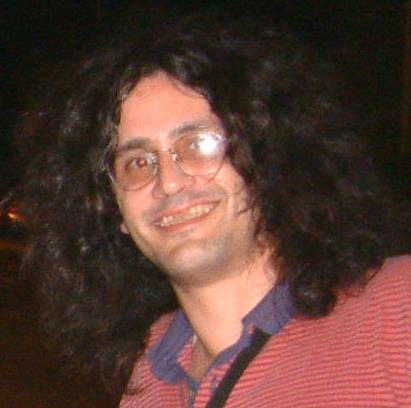
The Voice of the People
... or at least my own

|
|
... or at least my own |
|
May 5, 2002
Americans have a very limited understanding of the economic structure called banking. We understand banking in terms of supply and demand. If people want or desire to take out loans because they believe they will make a profit, then a high demand will exist for the supply of money and thus interest rates will go up. If however people are not desiring loans (because they don't believe they will profit) then interest rates will have to go down to make loans attractive. But lets look at this another way. Taking out a loan occurs when someone signs a contract for a bank to put a number in a computer system that says the person can withdraw "n" amount of funds. This person is under an obligation to make regular payments plus interest. Quite simply the interest is the income of the bank. If a lot of people are asking for loans, the interest payments will be increased. If not, the interest payments will be made more attractive. But where does the money the bank has originally come from? How come the bank can put a number in your account, but you can't? Here's the interesting fact of the contract. When the bank puts a number in your account, the bank also creates a document called an "asset" which states the "value" of the loan. The money that comes out of the account to pay the withdrawal from the loan is not the basis of value for the loan, the value of the loan is "created." Thats right, the loan does not come by looking at the available money resources of the bank, the loan is its own value. This is true whether we speak of home loans, car loans, commercial loans, short term inventory loans, or any type of loan there is ... the value of the loan is created. There is no backing entity like gold or paper. Money is just paper that is a way society transmits monetary obligations. When you buy something at the store, you are making a contractual agreement that the goods you have will be paid for from your account. The receipt you get is the historical leftover of this ancient contract. The money used for this purpose is printed by the government. The Federal Reserve was created to make sure the system had enough money and reserve credits in the computer. The federal reserve came about in order to control the chaos of the nations independent banking money creationists, and to centralize the availability of reserves. The system is self-created. There is no magic entity. Now money creates society, and when a bank adds numbers to accounts, some institution is created in society. There is no reason banks have to fulfill this function. Government agencies could (and already have successfully) make the same contracts with citizens for the purposes of education or health insurance. The interest could be very low, and the interest money raised could helppay for agency budget instead of forming part of the conglomerate banking enterprises. But banking has a long tradition in our history. This long tradition has created a myth of freedom surrounding the private enterprises of banking. The free market ideology assumes that decisions are best made when done as the result of free and fair competition. The problem with the ideology is not that it has no basis in fact, but that the premise rests upon their being "free and fair competition." We are not talking about competitors for the best car washes, but a large network with the same face. The banking industry is highly concentrated. The industry also combines with insurance, finance, and banking so as to make them indistinguishable. What happens is a collusion of similar interests, ie. the banks are organized to decide as a group. It doesn't matter if there are 200 different names when the results are the same because modern day computer systems make collusion more efficient and easier to implement. These decisions can be arbitrary and can adversely affect society, but we act as if the "market" made the best decision. The economic structure of banking is a very interesting network that you should know about because this is the new means of understanding what to do with our country. The Federal Reserve System, Wall Street, selling bonds, getting loans, interest rates, commercial banking, brokerages, money markets, government debt, the federal budget, and savings accounts ... are all related. In this day and age we need to understand how so we can break free of the current straitjacket our contemporary politics has got us into ... that is : you either raise taxes and spend, or you cut taxes and reduce government spending. Notice the only result of this illusion: government spends more each year and taxes only get reshuffled, but they don't go away. We need a new way of thinking. |